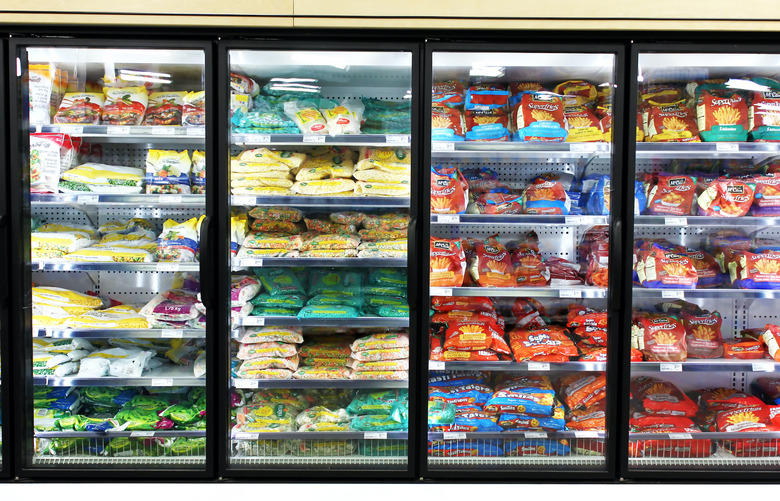Frozen Foods Drive Grocery Store Sales Amid The Coronavirus Pandemic
When restaurants shut their doors around the country due to the coronavirus pandemic, Americans ran to the store and spent $15 million more on groceries than they did the month before. According to new data from the American Frozen Food Institute (AFFI), 86% of people bought frozen food in April, and 70% of consumers are purchasing more frozen food than they would have before the pandemic.
Coronavirus Grocery Shopping Tips for Making the Most of Your Trip
The most frequently bought categories were frozen vegetables (which are just as healthy for you as the fresh kind), meat and frozen pizza, all of which saw double-digit, and even triple-digit increases in dollar sales from the same time last year.
With nine in 10 people now making more meals at home — the biggest increase being among older millennials and Gen X — 73% of consumers are also spending more time on meal preparation than before. Singles are less likely to take their time in the kitchen than households of two, and especially three or more.
So, why are people choosing frozen over fresh? To stock up in case of food shortages and limit the number of trips to the grocery store. People are also looking for items that are easier and faster to make and meals that don't need much cleanup.
Shoppers are also under the assumption that frozen foods are safer than fresh foods, though there's no evidence for that. The main reason people have turned to frozen food, though, is shelf life. Frozen food lasts a long time, and here's how long everything lasts in your fridge and freezer.
